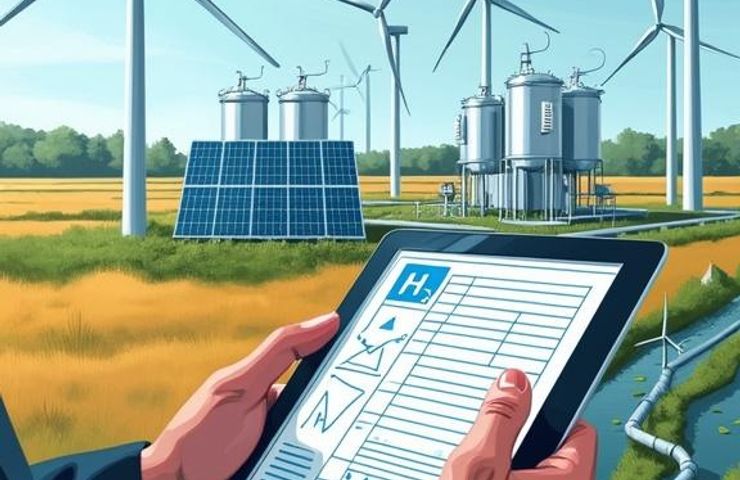
Germany Fast-Tracks Hydrogen Infrastructure—but Green Standards Still in Flux
July 31, 2025Bureaucracy Out, Hydrogen In
After much waiting, Germany finally dropped the long-anticipated Hydrogen Acceleration Act (WassBG) this July—and it’s a game changer. The goal? Cut through the bureaucratic red tape that’s been holding back the country’s hydrogen infrastructure since the National Hydrogen Strategy launched in 2020. This new law basically declares hydrogen projects “super important”—or in legal terms, of ‘overriding public interest’—which makes it way easier for these projects to bypass long permitting delays and get moving faster.
Sounds promising, right? Well… not everyone’s popping the champagne just yet.
What It Means
If the act makes it through Parliament, it could put Germany’s hydrogen ambitions into high gear—think smoother approval processes, stronger supply chain backing, and better conditions for bringing PEM electrolysers, pipelines, and other key tech online. Plus, it might finally open the door for major private investment in zero-emission technology.
But there’s a catch—what kind of hydrogen are we actually talking about here? Because if it’s not green hydrogen, we might just be trading one problem for another.
BEE: Back to 80% or Bust
The German Renewable Energy Federation (BEE) sees both the upside and the red flags. On one hand, they support the push to speed things up. On the other, they’re sounding alarms over a key requirement that somehow vanished during the law’s drafting—a rule that said at least 80% of the electricity used in electrolysis had to come from renewable energy. Without that, we could end up dressing up dirty hydrogen in green packaging—and that’s a problem.
BEE is also pushing for biogenic hydrogen and biomethane infrastructure to be part of the equation. Right now, they’re missing from the plan, and that’s seen as a missed opportunity for lower-carbon alternatives. The concern? The law might pump up supply but water down the climate benefits it’s supposed to deliver.
Strategic Perspective
From a political angle, the pressure’s on. Germany’s National Hydrogen Strategy is four years old, and there’s not enough to show for it. Meanwhile, international rivals are racing ahead, and major industries like steel, chemicals, and ammonia are calling for urgent action. Yes, fast-tracking permits and infrastructure is crucial—if it’s done with real direction and tight alignment to actual decarbonization goals.
Snap Analysis
This isn’t Germany’s first “build now, clean later” moment—but it needs to be the last. In 2025, industry won’t just settle for more hydrogen. It needs green hydrogen, backed by hard targets and solid offtake agreements. Without these safety nets, the investment world stays hesitant, and environmental watchdogs won’t stay quiet.
Plus, the current draft doesn’t fully sync with EU rules on hydrogen imports or terminal classification. Bottom line: rushing is pointless if everything stays confusing. Fast only works when it’s also consistent—and enforceable.
Voices in the Room
The German Renewable Energy Federation isn’t alone in raising red flags. The National Hydrogen Council and FNB Gas are echoing the same concerns. Everyone agrees that speed is essential—but not at the expense of clear, long-term climate goals.
The takeaway? Fast only works if it’s also smart.
The Bottom Line
The Hydrogen Acceleration Act has the power to supercharge Germany’s hydrogen infrastructure buildout. But if lawmakers don’t close the gaps on green standards and long-term planning, they’re setting up a future that moves quickly toward the past—not forward.
Your move, Bundestag.



 With over 15 years of reporting hydrogen news, we are your premier source for the latest updates and insights in hydrogen and renewable energy.
With over 15 years of reporting hydrogen news, we are your premier source for the latest updates and insights in hydrogen and renewable energy.